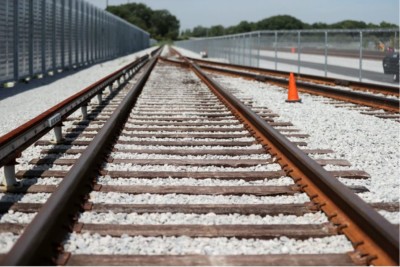Nathaniel Taplin | The Wall Street Journal
A Chinese company with state links is helping build U.S. infrastructure. Could that put national security or corporate secrets at risk?
If the infrastructure in question is the backbone of the nation’s high-speed data network, then the answer could very well be yes. But U.S. lawmakers are now moving to bar Chinese companies from taking federal money to build passenger railcars and buses, where the security rationale is far less straightforward.
U.S. public-transport infrastructure is already aging, expensive and performing poorly. Forcing low-cost Chinese manufacturers out of the market won’t help, particularly since Chinese buses and railcars are already being assembled at U.S. factories to comply with existing “Buy America” requirements.

The rationale for cutting out Chinese companies is twofold. First, cameras and other equipment could be used to acquire sensitive information. While there is a case to be made that freight patterns are sensitive since they relate to the military, the security risks from commercial passenger traffic appear much lower. VIPs are unlikely to be on mass transit to begin with, and if they are, they probably aren’t reading sensitive documents. Moreover, since Chinese companies are manufacturing in the U.S., regulators have plenty of other options besides an outright ban to allay security concerns.
The second objection holds more weight. Chinese companies have, in many cases, benefited from big subsidies and protection in their home market.
Take CRRC Corp., the state-owned titan which has built plants in Chicago and Springfield, Mass. The company in 2016 accounted for more than 90% of new railway and urban-transit vehicle orders in China, according to ratings company Moody’s. Moreover, like most state-owned companies in China, it has privileged access to finance. While private-sector Chinese companies pay a weighted average rate of close to 6% for bank financing, state-owned champions like CRRC can issue bonds at under 4%. State-owned companies dominate investment-grade bond issuance in China and often enjoy cheaper bank loans as well, since lenders assume problems will be mopped up by the state.
In CRRC’s case, however, it isn’t clear that the uneven playing field is harming U.S. companies or consumers. Major competitors in the U.S. railcar market are all foreign companies like Kawasaki, Alstom and Siemens . And railcar procurement in the U.S. is very expensive compared with other developed nations, costing about 30% more, according to figures cited by the Congressional Research Service.
Targeting an already foreign-dominated, overpriced industry for further protection seems unlikely to help U.S. growth or competitiveness. CRRC hasn’t won all its U.S. bids in any case, according to the CRS.
A systematic way to deal with state-subsidized foreign competitors—particularly from China, where subsidies are hard to measure—is something the U.S. government urgently needs. But a piecemeal approach, based on questionable premises, undermines U.S. claims that its regulators treat foreign companies fairly. If the proposed ban goes through, companies like Kawasaki will benefit. That can’t be said of either the U.S. economy or the nation’s security.
source: The Wall Street Journal